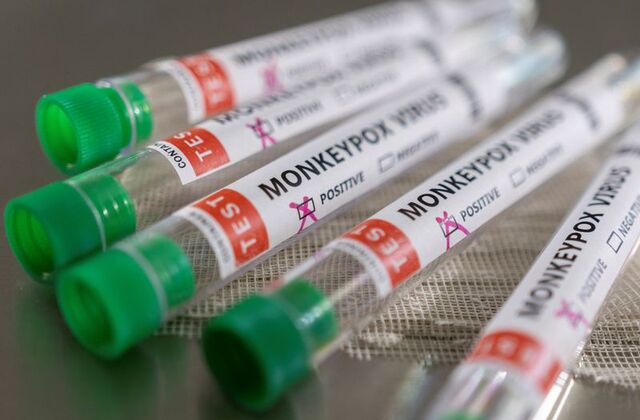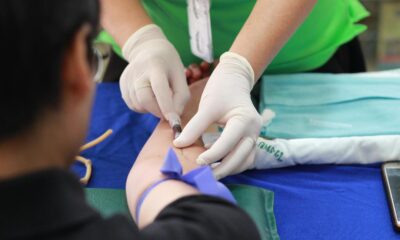#TurksandCaicos, May 23, 2022 – The Ministry of Health and Human Services has been carefully monitoring reports of monkeypox which have been increasing and are being reported in multiple countries across Europe (Spain, Portugal, Germany, Belgium, France, the Netherlands, Italy and Sweden), the US, Canada and Australia. 12 countries which are not endemic for monkeypox, so far have reported at least 92 confirmed cases with 28 pending investigations. More cases are likely to be reported as surveillance expands.
Although no cases have been reported in the Caribbean, it is important that persons are aware of the situation as it continues to evolve.
Monkeypox is a viral illness and is found in a number of countries in Central and West Africa. The more recent news of spread to countries without known endemic disease is unusual. Cases may occur in persons who have travelled from Nigeria or who have been in contact with persons with the confirmed illness. Cases which have been reported since May 14 2022, have largely had no history of travel.
The UK Health Security Agency (UKHSA) has announced that the total number of monkeypox cases confirmed in England since 6 May is 20. The UKHSA initially identified one case of monkeypox on 7th May 2022 in an individual with a history of recent travel to Nigeria. Subsequently, additional infections have been identified, some of which have been linked and others which have been unrelated. This spread as well as the occurrence of cases in Europe and other countries has suggested the possibility of community spread. Active investigations are ongoing in countries which have identified cases including contact tracing, testing isolation etc. in order to prevent further spread.
The World Health Organization (WHO), held an emergency meeting on Friday 20th May 2022 to discuss the monkeypox outbreak. WHO is working with affected countries in order to expand disease surveillance to find and support people who may be affected, and to provide guidance on how to manage the disease.
It is expected that more cases will be identified through surveillance with the possibility of additional countries being affected.
TCI residents returning from, or going to, countries where cases have been identified, are urged to be aware of the signs of infection and to seek medical help if they think they may be at risk.
How the virus spreads
Monkeypox does not spread easily between people. The virus spreads through close contact with an infected animal (rodents are believed to be the primary animal reservoir for transmission to humans), humans, or materials contaminated with the virus. Human-to-human transmission occurs through large respiratory droplets and by direct contact with body fluids or lesion material. Respiratory droplets generally cannot travel more than a few feet, so prolonged face-to-face contact is required.
The virus enters the body through broken skin (even if not visible), the respiratory tract, or the mucous membranes (eyes, nose, or mouth).
Person-to-person spread is uncommon, but may occur through:
- contact with clothing or linens (such as bedding or towels) used by an infected person
- direct contact with monkeypox skin lesions or scabs
- coughing or sneezing of an individual with a monkeypox rash
Animal-to-human transmission may occur through a bite or scratch, preparation of wild game (in areas where the virus is present in animals such as Central and West Africa), and direct or indirect contact with body fluids or lesion material.
Individuals, particularly those who are gay, bisexual or MSM, are urged to be alert to any unusual rashes or lesions on any part of their body, especially their genitalia, and to contact a health services if they have concerns.
Monkeypox has not previously been described as a sexually transmitted infection, though it can be passed on by direct contact during sex. It can also be passed on through other close contact with a person who has monkeypox or contact with clothing or linens used by a person who has monkeypox.
Symptoms
The incubation period is the duration/time between contact with the infected person and the time that the first symptoms appear. The incubation period for monkeypox is between 5 and 21 days.
Initial symptoms of monkeypox include fever, headache, muscle aches, backache, swollen lymph nodes, chills and exhaustion.
Within 1 to 2 days a rash can develop, often beginning on the face, then spreading to other parts of the body including the genitals.
The rash changes and goes through different stages – it can look like chickenpox or syphilis, before finally forming a scab which later falls off.
The illness tends to be mild and self-limiting within 2-4 weeks, however it can in some cases be severe particularly in persons with weakened immune systems and children. In some cases, affected persons may die.
Treatment
Treatment for monkeypox is mainly supportive. The illness is usually mild and most of those infected will recover within a few weeks without treatment.
There is no specific vaccine for monkeypox, however, vaccines used against smallpox can be used for both pre and post exposure and is up to 85% effective in preventing monkeypox. People vaccinated against smallpox in childhood may experience a milder disease.
Anyone with unusual rashes or lesions on any part of their body, especially their genitalia, is advised to visit their health care provider, particularly anyone who; 1) traveled to countries where monkeypox cases have been reported 2) reports contact with a person who has a similar rash or received a diagnosis of confirmed or suspected monkeypox, or 3) is a man who has had close or intimate in-person contact with other men in the past month.
As the virus does not usually spread easily between people and the risk to the general public is expected to be low, however the public is advised to monitor the situation as it develops and obtain information from credible sources. The MOH should be notified of any suspected cases.
The Ministry of Health will continue to monitor developments and provide updates accordingly.


 Caribbean News7 days ago
Caribbean News7 days ago
 Caribbean News7 days ago
Caribbean News7 days ago
 Caribbean News1 week ago
Caribbean News1 week ago
 Caribbean News7 days ago
Caribbean News7 days ago
 Bahamas News7 days ago
Bahamas News7 days ago
 News7 days ago
News7 days ago
 Bahamas News1 week ago
Bahamas News1 week ago
 News7 days ago
News7 days ago



























